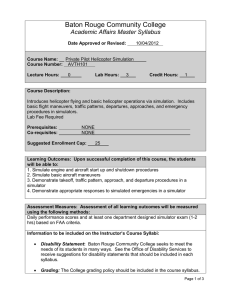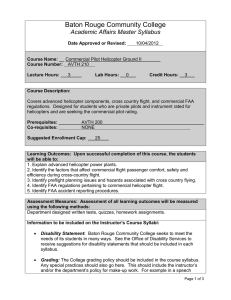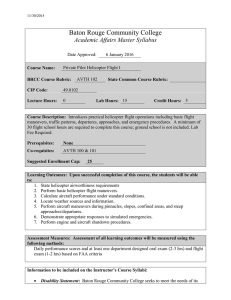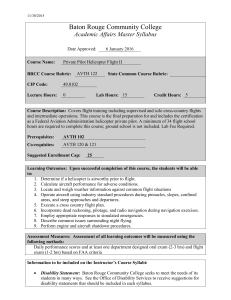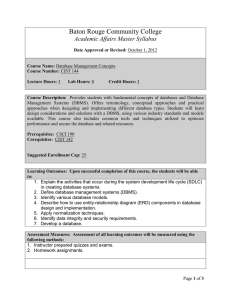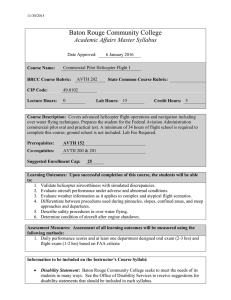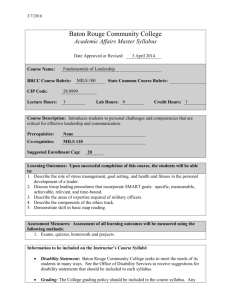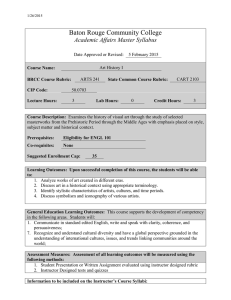Baton Rouge Community College Academic Affairs Master Syllabus
advertisement
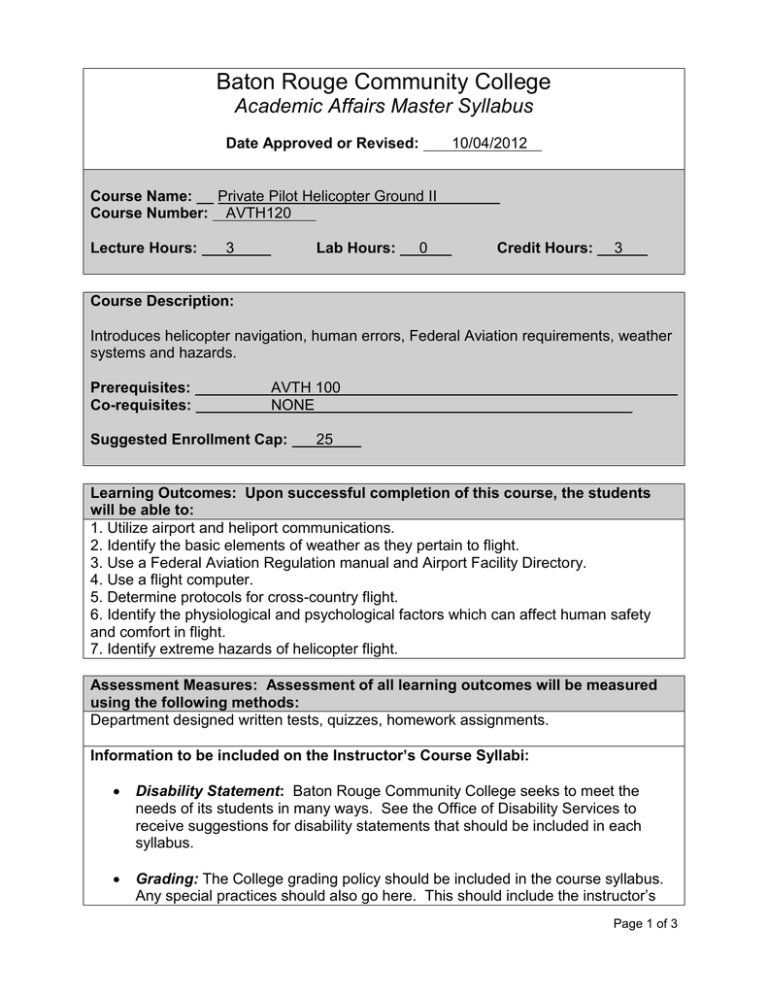
Baton Rouge Community College Academic Affairs Master Syllabus Date Approved or Revised: 10/04/2012 Course Name: __ Private Pilot Helicopter Ground II _______ Course Number: AVTH120 Lecture Hours: 3 Lab Hours: 0 Credit Hours: __3___ Course Description: Introduces helicopter navigation, human errors, Federal Aviation requirements, weather systems and hazards. Prerequisites: Co-requisites: AVTH 100 NONE Suggested Enrollment Cap: 25 Learning Outcomes: Upon successful completion of this course, the students will be able to: 1. Utilize airport and heliport communications. 2. Identify the basic elements of weather as they pertain to flight. 3. Use a Federal Aviation Regulation manual and Airport Facility Directory. 4. Use a flight computer. 5. Determine protocols for cross-country flight. 6. Identify the physiological and psychological factors which can affect human safety and comfort in flight. 7. Identify extreme hazards of helicopter flight. Assessment Measures: Assessment of all learning outcomes will be measured using the following methods: Department designed written tests, quizzes, homework assignments. Information to be included on the Instructor’s Course Syllabi: Disability Statement: Baton Rouge Community College seeks to meet the needs of its students in many ways. See the Office of Disability Services to receive suggestions for disability statements that should be included in each syllabus. Grading: The College grading policy should be included in the course syllabus. Any special practices should also go here. This should include the instructor’s Page 1 of 3 and/or the department’s policy for make-up work. For example in a speech course, “Speeches not given on due date will receive no grade higher than a sixty” or “Make-up work will not be accepted after the last day of class.” Attendance Policy: Include the overall attendance policy of the college. Instructors may want to add additional information in individual syllabi to meet the needs of their courses. General Policies: Instructors’ policy on the use of things such as beepers and cell phones and/or hand held programmable calculators should be covered in this section. Cheating and Plagiarism: This must be included in all syllabi and should include the penalties for incidents in a given class. Students should have a clear idea of what constitutes cheating in a given course. Safety Concerns: In some programs this may be a major issue. For example, “No student will be allowed in the safety lab without safety glasses.” General statements such as, “Items that may be harmful to one’s self or others should not be brought to class.” Library/ Learning Resources: Since the development of the total person is part of our mission, assignments in the library and/or the Learning Resources Center should be included to assist students in enhancing skills and in using resources. Students should be encouraged to use the library for reading enjoyment as part of lifelong learning. Expanded Course Outline: Airspace, Charts VFR Cross Country Planning, Navigation Cross Country Planning Practice E6B, Plotting, & Flight Planning Cross Country Planning Practice Weather Theory for Pilots I Weather Theory for Pilots II Air Masses, Fronts & Weather Hazards Observed Weather Reports Forecast Weather Reports FARs, AIM, NTSB Flight Physiology Page 2 of 3 Human Factors, ADM Review: Bring in questions for instructor Objectives: This course helps prepare the student to become a helicopter private pilot by covering the knowledge required for a portion of the written test and the oral test. When this course and the associated simulator & flight courses are completed, the student will have met the requirements to become a helicopter private pilot. Page 3 of 3
